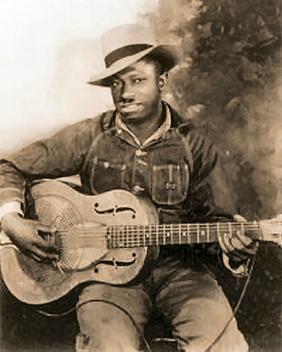Robert Petway was an African-American blues singer and guitarist.
Very little is known about Robert Petway. His birthplace is speculated to have been at or near J.F. Sligh Farm near Yazoo City, Mississippi, birthplace of his close friend and fellow bluesman Tommy McClennan. His birthdate is guessed at 1908, and the date and even the occurrence of his death is unknown. There is only one known picture of Petway, a publicity photo from 1941. He only recorded 16 songs, but he is said to have been an influence on many notable blues and rock musicians, including John Lee Hooker, Muddy Waters, and Jimi Hendrix.Like many bluesmen from the Mississippi Delta, Petway traveled around as a musician, playing at parties, roadhouses, and other venues available. Petway and McClennan often travelled and performed together. After McClennan had been in Chicago for a few years, Petway travelled north to join him and cut records, as did Georgia's Frank Edwards who met them in MS.
One of Petway's most influential songs is "Catfish Blues", which he recorded in 1941. Muddy Waters used the lyrics and style of "Catfish Blues" for his first single "Rollin' Stone", the song from which the rock group The Rolling Stones chose their band name. There is debate on whether Petway deserves any credit for the Muddy Waters song, mostly stemming from the fact that blues musicians often borrow lines and verses from each other and often use common symbols and phrases that can't be traced back to one source. There is even some speculation that Tommy McClennan wrote the version that Petway recorded. Max Haymes has written a well-researched article, "Catfish Blues (Origins of a Blues)" on the topic, available at earlyblues.com. When David "Honeyboy" Edwards, a follower of Petway, was asked if Petway wrote the song, he replied, "He just made that song up and used to play it at them old country dances. He just made it up and kept it in his head."
There is no record, official or unofficial, of Petway's death. As such, he may still be alive, though he would be roughly 100 years old. The last record of his public life is a quote from Honeyboy Edwards: "nobody I know heard what become of him!

